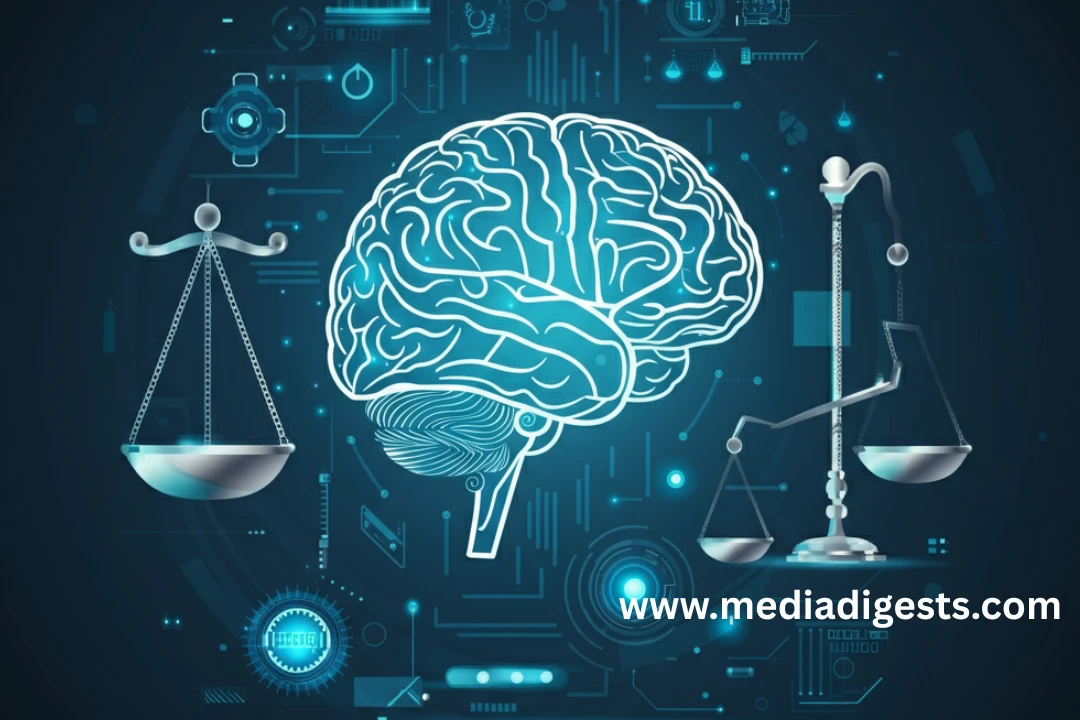Technology keeps evolving, and with it, the way we live, work, and connect changes too. Machines are now making decisions that affect our lives, sometimes in ways we don’t see. While artificial intelligence can help in many ways—making life easier and boosting what we can achieve—it also brings up difficult questions about right and wrong. Today, facing the ethical issues in AI development isn’t optional; it’s necessary if we want a future where technology works for everyone.
Understanding Bias in AI Algorithms
One major challenge is that algorithms can absorb and repeat biases found in the real world. Developers often use data to teach machines how to make decisions. If this data reflects unfair ideas, the technology can end up copying and reinforcing those problems.
The Problem of Biased Data
Real people make mistakes, and those mistakes show up in the data we collect. For instance, if a hiring tool is only trained on resumes from one gender or group, it might unfairly prefer similar candidates in the future. This isn’t just theory—a lot of real-world systems have come under fire for hidden discrimination.
Consequences of Biased Results
When bias sneaks in, it’s not just annoying—it can lead to real harms. Imagine a neighborhood that’s over-policed because a program thinks it’s “high risk,” or a loan application denied based on faulty data. These aren’t small problems: they impact lives, families, and entire communities.
The Challenge of Transparency and Accountability
If you’ve ever wondered how a computer program made a decision, you’re not alone. Many modern tools work in ways that are hard to explain, even for their creators. This can make it tough to know who’s at fault when things go wrong.
When an accident happens with an automated system, fingers start pointing. Is the programmer to blame? The company using the technology? Or maybe the people who bought it? Answering these questions is a big part of solving ethical issues in AI development, and we need clear rules for accountability.
Job Displacement and Economic Impact
It’s impossible to ignore that automation is changing the workplace. Some see it as an opportunity, but many workers worry about their future.
Preparing for a Changing Workforce
Here are just a few of the questions society must answer as technology transforms jobs:
- How will we support people whose jobs are replaced by machines?
- What should companies and governments do about retraining?
- Should new safety nets, like universal basic income, be part of the solution?
Handling these ethical issues in AI development requires planning—otherwise, the benefits will not be shared equally, and some groups will fall behind. Please visit for more joy.link free credit no deposit.
Privacy and Data Surveillance Concerns
A huge part of modern technology relies on collecting information. While this helps tailor experiences and improve services, it also opens the door to privacy problems.
Protecting Personal Privacy
Every online search, social media post, or app download adds to your digital footprint. This data can be pieced together to create detailed profiles that could be used for everything from selling you products to deciding your insurance rates. Part of the ethical issues in AI development is making sure innovation doesn’t come at the cost of personal privacy.
The Dangers of Surveillance
Smart cameras and facial recognition sound convenient, but they can also be used to track people without their consent.
- Surveillance systems make it easier for authorities to watch us around the clock.
- Mistakes in facial recognition software can lead to wrongful accusations.
- These technologies may be misused by those in power to control or punish dissent.
The Rise of Autonomous Machines
One of the thorniest ethical debates surrounds machines that act on their own, especially in high-stakes areas like the military. “Killer robots” aren’t just science fiction anymore, and experts are divided: some want strict limits and international agreements, while others argue for continued research.
Conclusion: Shaping a Fair Tech Future
Ethical issues in AI development touch everything from fairness and economic opportunity to privacy and safety. There’s no single answer, but that doesn’t mean we can ignore the tough choices ahead. If we want technology to serve us all, everyone—coders, companies, lawmakers, and everyday people—needs to be part of the conversation. With honesty and a commitment to doing what’s right, we can guide intelligent technology toward a more inclusive, responsible future.
For further reading on responsible technology, check out the Ethics Guidelines for Trustworthy AI by the European Commission.
Frequently Asked Questions (FAQs)
1. What’s the main ethical concern with artificial intelligence?
Bias in automated decision-making is a top concern, as it can deepen unfairness in areas like job hiring or law enforcement. When overlooked, these flaws risk causing real-world harm.
2. How can we make technology more ethical?
Transparency, diverse teams, and strict data checks all help. Laws and guidelines that focus on fairness and privacy are necessary for safer innovation.
3. Who should be responsible for ethical technology development?
Responsibility should be shared by developers, companies, government regulators, and society at large. Everyone has a role in holding technology to high ethical standards.
4. Why do privacy issues matter with smart technologies?
With more data being gathered, your personal information becomes vulnerable to misuse. Ethical development means balancing convenience with your right to privacy.
5. Can technology ever be completely unbiased?
Absolute objectivity is hard, but the goal is to spot bias early and correct it. Ongoing review and updating are key to making systems as fair as possible.
You may also read: How to Use AI for Data Analysis

